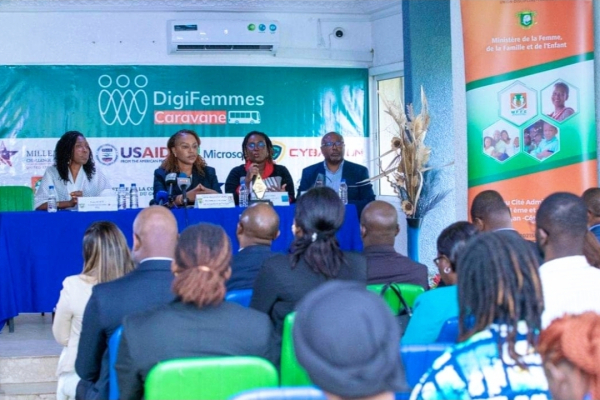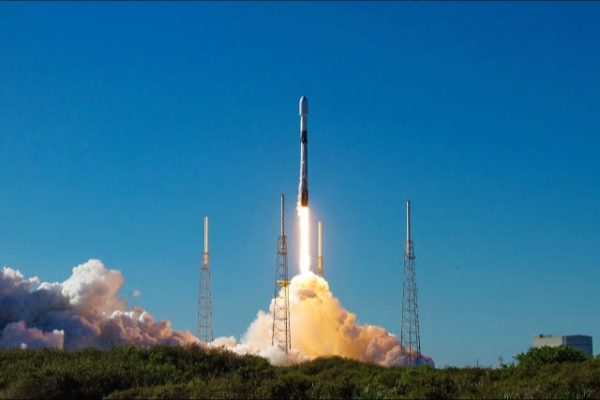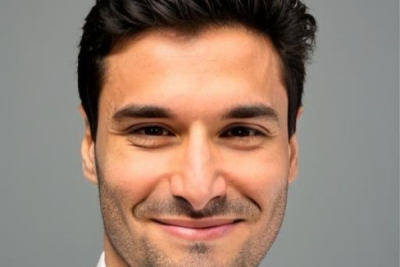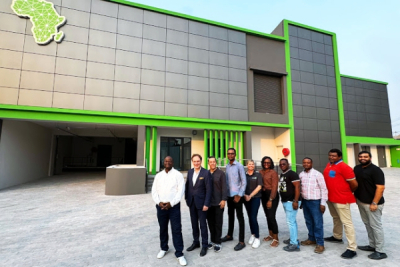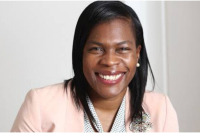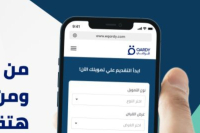As digital transformation gains momentum, the demand for skilled labor is increasing. In Côte d'Ivoire, the government is working closely with the private sector to ensure that all citizens receive the necessary training to contribute to this shift.
Digital training center DigiFemmes announced on Wednesday its goal to train 1,000 Ivorian women in digital skills, leadership, and responsible technology use.
The initiative follows a memorandum of understanding signed between Nassénéba Touré, Minister of Women, Family, and Children, and DigiFemmes during the official launch of the DigiFemmes Caravan program on August 14.
"Through this caravan, we will offer a variety of training sessions, workshops, and resources to support women in their personal development and contribute to the progress of our nation. This program will enable thousands of women to acquire essential digital skills that will enhance their lives in every aspect," stated Nassénéba Touré.
The program aligns with DigiFemmes' mission to bridge the digital divide and supports the Ivorian government's view of digital technology as crucial for women's employability and empowerment.
In 2019, women represented 38% of the ICT sector workforce, with 30% in executive positions, according to Côte d'Ivoire's Data Protection Authority.
Since 2015, programs like Orange Foundation's Maisons Digitales have trained 4,738 women in digital fields, underscoring ongoing efforts for women's economic empowerment in Côte d'Ivoire.
The DigiFemmes partnership aims to improve women's integration into the digital economy, enhance leadership skills, and strengthen autonomy. It is expected to reduce the gender digital skills gap and foster innovation, contributing to the country's socio-economic development.
Samira Njoya
Satellite technology has seen significant growth in Africa over the past ten years. While the telecommunications sector has traditionally been the primary beneficiary, Earth observation is increasingly gaining value with a growing number of African states now eager to enhance their territorial monitoring capabilities through satellite technology.
Senegal successfully launched its first satellite, GAINDESAT-1A, into space on Friday, August 16, 2024, after a three-month delay. The nanosatellite lifted off at 6:56 p.m. local time from Vandenberg Space Force Base in California aboard SpaceX's Falcon 9 rocket as part of the Transporter-11 mission.
Developed by Senegalese engineers and technicians trained at the University Space Center of Montpellier (CSUM) under a partnership with the Senegalese government, GAINDESAT-1A represents the culmination of a five-year project.
President Bassirou Diomaye Faye hailed the achievement, saying, "Senegal enters a new era today with the successful launch of our first satellite ... this achievement marks a major step towards our technological sovereignty."
The launch is the first phase of Senegal's national space program, "SenSAT," which aims to leverage the space sector as a driver of socio-economic development. The program focuses on designing and utilizing space-based tools to meet national needs for space products and services.
Moussa Baldé, former Minister of Higher Education, Research, and Innovation, stated last October that the program aims to establish Senegal as "a space hub for the sub-region."
GAINDESAT-1A, an Earth observation satellite, will contribute to data collection and analysis for various applications, including natural resource and land management, disaster prevention, agriculture and more.
The satellite's control and data reception center, inaugurated in October 2023, is located in Diamniadio.
Investing in renewable energy and clean technologies is essential for reducing carbon emissions and enhancing energy security. Ultimately, they can help safeguard Africa’s economic future by addressing the root causes of climate-related economic losses and contributing to a more sustainable and prosperous continent.
The African Development Bank Group (AfDB) has approved $10 million to the KawiSafi II Fund to support climate-focused startups serving vulnerable communities across Africa. Announced on August 12, the investment will be drawn from the Sustainable Energy Fund for Africa (SEFA), a financing facility managed by the AfDB.
KawiSafi Ventures Managing Director Amar Inamdar described the investment as “catalytic,” noting that it would help the fund achieve its first close and attract further capital to support Africa’s climate innovators. “The African Development Bank’s investment into KawiSafi II, our innovative climate fund, is catalytic for helping us reach a first close and attract the significant private capital that is urgently required to support Africa’s climate innovators,” he said.
The $200 million KawiSafi II Fund targets energy transition, productivity, mobility, and logistics in sub-Saharan Africa and includes a $10 million facility for climate impact and ESG risk management.
The new fund follows KawiSafi Fund I, a $67 million off-grid energy fund launched in 2016 and backed by Acumen Fund. Fund I has invested in companies such as d.light, Bboxx, and BioLite. d.light recently secured a $176 million facility to scale its PayGo consumer finance offering in Kenya, Tanzania, and Uganda.
Projections from the "State and Trends in Adaptation Report 2023" by the Global Center on Adaptation estimate that climate change could cause a 2% to 4% annual loss in Africa’s GDP by 2040. This highlights the critical importance of the African Development Bank Group’s (AfDB) $10 million investment in the KawiSafi II Fund.
The investment aligns with the AfDB's broader goals of fostering sustainable development in Africa, demonstrating a commitment to addressing both immediate and long-term challenges through strategic financial support.
Hikmatu Bilali
Born out of the notice that informal markets, often referred to as 'souks' or 'dukas' in Ethiopia, are underserved by traditional market players and distributors. The solution aims to bridge this gap.
Jemla is a business-to-business e-commerce platform developed by an Ethiopian startup that enables informal shop owners to source supplies from distributors of fast-moving consumer goods (FMCG). Founded in 2019 by Estephanos Zewdie and based in Addis Ababa, the startup aims to empower informal businesses by enhancing their operations and financial stability.
"Part of our mission is to provide retailers with access to essential financial services. We understand the importance of financial empowerment in driving business growth and sustainability," the startup states.
Jemla's solution is accessible through a mobile application available exclusively on Android. Users can create an account to connect with various suppliers on the platform. Depending on their inventory needs, they can place orders and receive deliveries the next day directly to their shops. This system ensures that retailers maintain adequate stock levels to consistently meet customer demand.
In addition to its core services, Jemla offers supplementary support. The startup collects data from each shop to provide financing options, credit facilities, or deferred payment plans. "We plan to leverage the transaction data from these retailers to facilitate access to 'Buy Now, Pay Later' (BNPL) services and financial products from banks and financial institutions, thereby improving their cash flow and financial stability," explains Estephanos Zewdie.
Currently operating solely in Addis Ababa, Jemla serves over 12,000 retailers on its platform. However, the startup has no immediate plans for expansion beyond its local market, focusing instead on replicating its successful model in other cities across Ethiopia.
Adoni Conrad Quenum
He is committed to supporting small and medium-sized enterprises by streamlining their operations and enhancing their profitability. To achieve this, he offers an innovative technological solution that enables real-time inventory tracking and management.
Tunisian computer scientist and entrepreneur Seddik Houimli (photo) is the founder and CEO of SupplyzPro, a tech startup helping small and medium-sized enterprises (SMEs) optimize their operations management.
Founded in 2023, SupplyzPro offers an innovative platform allowing businesses to track inventory in real-time, regardless of location. The solution provides tools for tracking, forecasting, and reporting, simplifying inventory processes and eliminating outdated practices.
The platform streamlines operations, reduces manual errors, and improves accuracy across the supply chain. Users can easily access up-to-date information on their inventory, including stock levels and demand. This results in more efficient management, better cost control, and increased responsiveness.
Houimli also works as a cloud solutions architect at Microsoft in Germany and is part of the operations and growth team at START Munich, an entrepreneurial community. He holds a computer science degree from the Technical University of Munich, obtained in 2023.
Before his entrepreneurial venture, Houimli worked as a teaching assistant at the Technical University of Munich from 2020 to 2021. He also served as a business intelligence analyst at SpaceTrec Partners (now Novospace), a company providing decision-makers in both public and private sectors with information to better manage their organizations. In 2022, Houimli worked as operations manager for Evadam, a Tunisian tech startup combating online fraud and money laundering.
Melchior Koba
The growing demand for connectivity, data storage, and processing in Africa highlights the rapid acceleration of digital transformation across the continent. To meet the needs of businesses and governments, significant investments in digital infrastructure are underway.
Open Access Data Centres (OADC), a subsidiary of digital infrastructure provider WIOCC, launched its first facility in the Democratic Republic of Congo (DRC) on Wednesday in partnership with local company Texaf.
OADC Texaf Digital - Kinshasa is a Tier 3 open-access data center, neutral with respect to operators. It features 2 MW of computing capacity and 1,500 square meters of white space, accommodating over 550 racks.
"OADC Texaf Digital - Kinshasa is central to boosting many sectors of the DRC’s economy, creating rich and vibrant digital ecosystems, and providing content distribution networks and cloud content providers with access to a quality peering location in the country," said Mohammed Bouhelal, Managing Director of OADC Texaf DRC, said,
WIOCC and Texaf signed a shareholder agreement to build the data center in Kinshasa in July 2023. This aligns with WIOCC's plan to expand its digital infrastructure across Africa. The company operates six core data centers across the continent and more than 30 edge data centers in South Africa. It also boasts 200,000 kilometers of submarine fiber systems and 75,000 kilometers of terrestrial fiber. In June, WIOCC secured $41 million in funding to support its investments.
The new facility strengthens DRC’s digital infrastructure, meeting current and future needs of Internet exchange points, content providers, cloud operators, data carriers, telecommunications operators, and Internet service providers in the DRC. The launch comes amid high demand for digital services and high-speed connectivity from individuals, businesses, and government agencies.
Isaac K. Kassouwi
Cross-border payments in Africa face significant hurdles that slow down transactions. Innovative solutions are essential to streamline these payments and boost economic growth across the continent.
Latin American cross-border B2B payment platform Conduit announced on Monday, August 12, it raised $6 million in funding led by Helios Digital Ventures to expand into Africa.
The fintech, founded in 2021, will use the money to offer its services to African businesses struggling with high costs, slow speeds, and complex currency conversions.
Conduit has been operating in Kenya and Nigeria since December and processed more than $5 billion in annualized transaction volume, with 20% originating from those countries. The company plans to enter Ghana and South Africa soon.
The expansion comes as Sub-Saharan Africa remains the world’s most expensive region for sending money, with average costs of 7.9% per $200 transfer, according to the World Bank.
Conduit's expansion into Africa aims to address critical cross-border payment needs for businesses on the continent. By offering solutions that reduce costs, speed up transaction times, and simplify currency conversions, Conduit could become a key player in enhancing the financial efficiency of African businesses.
Samira Njoya
After several years working for financial institutions in the United States and Nigeria, she decided to venture into entrepreneurship. Today, she leverages her expertise and new technologies to serve African lenders, thereby making credit more accessible.
Yvonne Johnson (photo) is a Nigerian entrepreneur and investor. As co-founder and CEO of Indicina, a venture capital-backed fintech, she is driving financial inclusion across the continent.
Founded in 2017 by Johnson, Jacob Ayokunle, Carlos del Carpio, and Yemi Ajao, Indicina leverages artificial intelligence and machine learning to streamline lending for financial institutions. The company’s flagship products, Originate and Decide, provide a comprehensive solution for loan origination, management, and risk assessment.
Originate handles the entire loan lifecycle, from issuance to recovery and growth. Decide, on the other hand, offers credit risk models to help lenders make informed decisions and minimize defaults.
Beyond Indicina, Johnson is an active investor and advisor in early-stage tech companies, with a focus on West Africa and the Middle East and North Africa region. She holds a bachelor’s degree in computer science and mathematics from the University of Toronto and an MBA from Northwestern University’s Kellogg School of Management.
Prior to her entrepreneurial ventures, Johnson worked in investment banking at Merrill Lynch in 2008. Subsequently, she served as head of strategy and corporate development at First Bank of Nigeria from 2009 to 2018 before fully dedicating herself to Indicina.
Melchior Koba
Founded in 2022, the solution provides tailored loans to help businesses grow and thrive.
Egyptian fintech solution Qardy offers loans to micro, small, and medium-sized enterprises (MSMEs) and startups. Founded in 2022 by Abdel Aziz Abdel Nabi and based in Giza, it provides loans through a web platform, offering various options including traditional loans and supply chain financing to manage working capital. Loan amounts range from 1,000 to 242,000 Egyptian pounds (about $20 to $4,800).
Currently, Qardy has no mobile app. Users access services directly through the web platform. It assesses MSMEs based on annual revenue, creditworthiness, and stability. Loan approval can take up to 18 days, depending on application complexity. Qardy can provide multiple loan types to a single business, tailoring offerings based on individual needs.
In August 2024, it raised an undisclosed amount of funding to fuel growth.
“The support and trust of our investors have been instrumental in driving our growth and enabling us to expand our reach and impact in the market. This investment will allow us to further enhance our services, as well as accelerate our plans for expansion in Saudi Arabia and the region,” said Tamer El-Manasterly, Qardy’s chief operating officer.
Adoni Conrad Quenum
After five years of medical studies, he ventured into entrepreneurship by developing a telemedicine platform. The platform allows Djiboutians to receive medical care without leaving the comfort of their homes.
Moubarik Mahamoud (photo) is a Djiboutian entrepreneur well-versed in technology, healthcare, and communication. He is the founder and CEO of Medyc, an innovative startup in the healthcare sector.
Founded in 2020, Medyc specializes in e-health. The startup has developed an online teleconsultation platform that connects patients with healthcare specialists. This solution enables patients to easily access doctors, monitor their health, and evaluate the effectiveness of their treatments, all while enjoying the convenience of remote care.
In addition to teleconsultations, Medyc provides home care services, medication delivery, and direct supply of medical devices to patients. The platform centralizes users' medical information, offering simplified and secure access to health data. A connected laboratory feature allows patients to review their test results and receive interpretations.
Simultaneously, Moubarik Mahamoud serves as the Executive Director of Vivaway.co, an investment platform that allows users to grow their savings through investments in companies, either via equity acquisition or direct loans. The platform also offers businesses a new avenue for financing.
As a consultant in communication and web development, Mahamoud leverageshis expertise to create, manage, and optimize web and multimedia projects.
He completed five years of medical studies at Gamal Abdel Nasser University in Guinea from 2014 to 2019. In 2022, he earned a master's degree in management and business administration from the University of Paris 1 Panthéon-Sorbonne, along with an executive MBA from Sorbonne Business School in the same year.
Melchior Koba
More...
Algerian authorities want to equip the population with digital skills. One of their strategies to achieve that goal is to provide primary schools with dedicated tools.
Algeria is set to equip an additional 1,700 primary schools with digital tablets, as announced by Abdelhakim Belaabed (photo), the country's Minister of National Education, on Thursday, August 8. This announcement was made during a national conference focused on implementing the operational plan for the upcoming 2024-2025 school year in Mostaganem.
"This year, 1,700 primary schools will receive digital tablets, increasing the total number of schools equipped with such technology to 5,000 nationwide," Belaabed stated.
Since taking office in 2019, President Abdelmadjid Tebboune has prioritized digital technology as a key component of Algeria's development strategy. The COVID-19 pandemic has further accelerated the nation’s digital transformation efforts. According to the "Measuring Digital Development – ICT Development Index 2024" report released by the International Telecommunication Union in June, Algeria's ICT Development Index is 80.9 out of 100, placing it sixth in Africa.
This initiative aims to provide the population, especially primary school students, with essential digital skills. The introduction of digital tablets is expected to enhance students' digital competencies, promote inclusive education for those with special needs, and enable real-time tracking of students' progress, facilitating continuous assessment and the adaptation of teaching methods.
Adoni Conrad Quenum
African countries are now recognizing the benefits of interstate collaborations in achieving their digital goals. Numerous initiatives are emerging, bolstering joint efforts to accelerate the continent's digital transformation.
Sierra Leone and Guinea plan to strengthen cooperation in the digital sector, with plans for network interconnection, knowledge sharing, infrastructure development, and joint projects to spur digital growth.
For that purpose, a delegation led by Sierra Leone’s Communications, Technology, and Innovation Minister Salima Manorma Bah visited Conakry on Friday to discuss the partnership with Guinean Posts, Telecommunications, and Digital Economy Minister Rose Pola Pricemou.
“The goal is to translate the shared commitment of Guinea and Sierra Leone into concrete actions to build a dynamic and inclusive digital ecosystem in the region,” Guinea’s Digital Economy Ministry said. A meeting of private sector representatives from both countries is planned to outline technical details for the enhanced partnership.
The potential cooperation aligns with digitalization efforts underway in both countries to use technology for societal transformation and economic development. The talks follow Pricemou’s announcement of a possible interconnection between the two nations at the China-Africa Digital Summit in Beijing last month.
A successful partnership could improve connectivity quality and reach while lowering costs. Expanded internet access and shared expertise would accelerate digital transformation and promote inclusion for both populations.
Samira Njoya
Seven South African tech startups have been selected for the third Irish Tech Challenge South Africa, to build partnerships between South African entrepreneurs and Irish tech expertise.
Selected companies include SmartView Technology, Momint, and The Awareness Company, all contributing to the UN’s Sustainable Development Goals.
They were selected out of over 350 applicants in an initiative organized by the Embassy of Ireland in South Africa and partners.
They will receive up to EUR10,000 each, a trip to Ireland for business networking, and support from Dogpatch Labs.
The 27th Africa Tech Festival, scheduled for November 12-14, 2024, in Cape Town, is set to shine a spotlight on the significant contributions of women in Africa’s tech and telecom sectors. This year’s festival will feature prominent female leaders such as Funke Opeke, CEO of MainOne, and Mary Mahuma, CIO of Philip Morris, who will share their insights on the future of the industry.
The event, which includes AfricaCom and The AI Summit Cape Town, is expected to attract over 15,000 attendees. Organizers are emphasizing the festival’s role in promoting inclusivity and mentorship within the tech community. A highlight of the festival will be the InspiringFifty Africa awards, which recognize the top women in tech across the continent.


